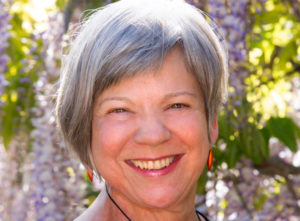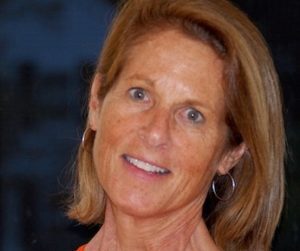
[Guest blog by Tamron Little, MA]
“Survivor” is a word within the cancer community that may ruffle some feathers of those who choose to use another word or phrase to describe their cancer journey. As for me, I’m a 16-year-and-counting peritoneal mesothelioma survivor! From the moment I was diagnosed with this rare cancer, I was in survival mode.
In my case, my cancer diagnosis was delayed due to my pregnancy and to being misdiagnosed. Originally, I was told I had a fibroid tumor and not to worry because women my age (21 at the time) and in my demographic were more prone to getting fibroids.
Just short of five months after I gave birth to my son, I was told I had cancer and given only 18 months to live. A cancer I hadn’t heard of before, nor did I know anyone who had it. Such a rare cancer that, at the time, little information was available. The information that was available wasn’t very hopeful, and I didn’t fit the description of the “typical patient demographic.”
Mesothelioma is caused by asbestos exposure. Asbestos is a harsh chemical used in a variety of materials. When these fibers are inhaled, they can lie dormant for years, usually 15 to 20, before causing damage to your lungs, stomach, or any organ they have attached themselves to.
I experienced a natural human reaction – SHOCK! I don’t think anyone who hasn’t been diagnosed with cancer can relate to the feeling of shock and the survival drive kicking in that happens when you hear the words, “You have cancer.”
When you’ve completed your treatments and your follow-ups become more spaced out, you’re still a survivor.
Survival mode
The best way I can explain the emotions and experiences I’ve lived through is that my mind and body were both in a battle. Part of my mind was trying to process the information, another part was in shock and went into flight mode, while the rest went into fight mode as the protector. At the same time, my body was receiving mixed messages and then dealing with the presence of cancer on top of that.
Some may think of war or fighting when the word battle comes to mind. But that’s just what it is, well from my experience anyway.
More than a decade later, I have been – and I still am – cancer-free. I’m a survivor. Not only am I surviving, but I’m thriving through survivorship. Although I’m finished with treatment and have been given a clean bill of health, I’m still on this journey of cancer survivorship.
When you’ve completed your treatments and your follow-ups become more spaced out, you’re still a survivor. Once you’ve overcome the first hurdle in your cancer journey, you still have to overcome another. And that’s putting the pieces back together and learning how to live a life after cancer.
Thriving in survivorship
I like to say that I’m thriving in survivorship. I’ve overcome the poor prognosis, fought and conquered cancer, and through it all I survived! Thriving is all about growing, flourishing, and prospering beyond your situation.
As a thriving cancer survivor, I use my experience to give others going through this tough battle hope. I’m part of a support group, hosted by The Mesothelioma Center, where I can be a light and voice of hope to others who are facing this rare cancer. Being among other cancer survivors who are in various stages of their journey really places things into perspective and fills me with gratitude. It puts a smile on my face and joy in my heart. Just by thriving in survivorship, I am giving someone else hope in a way words can’t describe.
Tamron Little, MA, was diagnosed with peritoneal mesothelioma at age 21. As a cancer survivor, writer, and speaker, she shares her unique story about this rare disease. It’s her mission to inspire and spread hope to others, which is why Tamron has embraced her role as a leader in the community, helping other mesothelioma survivors and their families. She has been featured in webinars for The Mesothelioma Center, is a key speaker at health forums like the White House Cancer Moonshot, and continues to raise awareness for advocacy efforts.




